'My life is a lie': All Children's doctors, nurses testify in 'Take Care of Maya' trial
Three defense witnesses on Thursday, all employees from Johns Hopkins All Children's Hospital, described what they saw as a worrisome relationship between Maya Kowalski and her mother, Beata, that they observed during Maya's first few days at the hospital during her admission in October 2016.
One former registered nurse who worked at Maya's bedside in the pediatric intensive care unit and a treating critical care physician both described an incident when 10-year-old Maya allegedly swore at hospital staff and another incident where Maya mentioned to a nurse she was "tired of the lies."
Maya Kowalski was in court briefly Thursday, appearing tired with a hollow look in her eyes as she sat for part of the proceedings before leaving the courthouse prior to midday.
More trial coverage: Kowalskis testify about personal, economic impact for damages
Defense presents their case: Case worker contests identity of voice in audio clips in 'Take Care of Maya' trial
The Kowalski family sued All Children’s Hospital in 2018 for $220 million more than a year after the family matriarch, Beata Kowalski, took her life following allegations she was abusing her daughter.
The family took 10-year-old Maya Kowalski to All Children’s Hospital in October 2016 after she complained of severe stomach pain, believed by the family to be a relapse of her Complex Regional Pain Syndrome, a disorder that impairs the central nervous system and heightens pain sensations.
Maya Kowalski was separated from her family, friends, and community following a Florida Department of Children and Families investigation and ordered by a judge to remain at the hospital. She remained separated for three months before reuniting with her father and brother shortly after her mother’s death.
Physicians, nurses describe encounters with Maya and Beata Kowalski
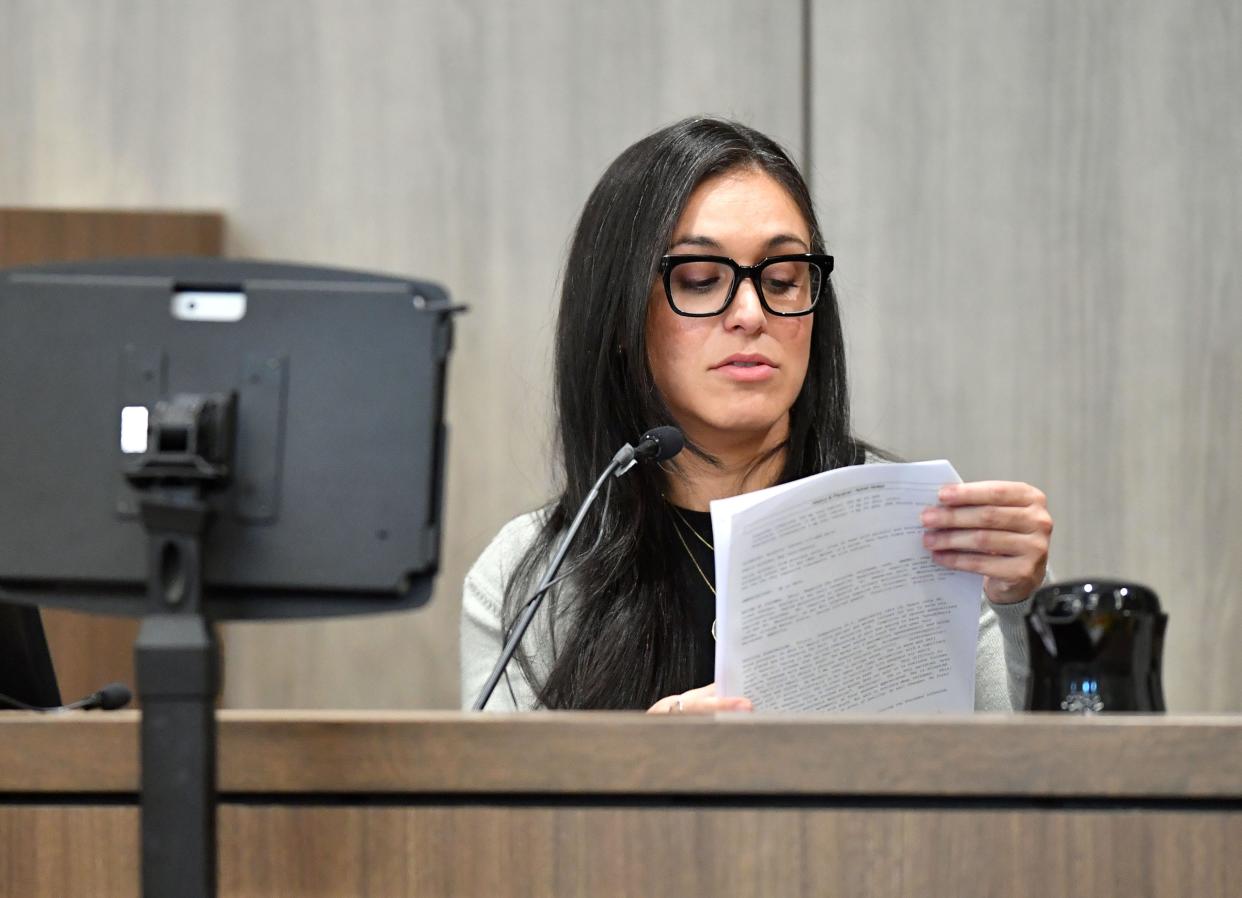
Dr. Beatriz Teppa-Sanchez, a critical care physician who started working at All Children's Hospital in 2016, treated Maya from Oct. 7 through Oct. 9 after she was transferred from the emergency room to the PICU, or pediatric intensive care unit.
Teppa-Sanchez's first interaction with the Kowalskis was chaotic, she said, recalling when she walked into the room, the 10-year-old was screaming, and Beata Kowalski was loud with the nurses.
Maya was suffering, Teppa-Sanchez said, and Beata was stressing that the nurses didn't know how to treat her daughter.
What surprised Teppa-Sanchez the most, and raised concern, was Maya's insistence that she needed her anesthesia medication and using terminology that the physician heard medical professionals use, but not 10-year-old children.
This is not the first time the jury has heard mentions of Maya Kowalski acting unruly or yelling at the staff and thrashing around in her bed during her first days at the hospital.
However, Maya Kowalski has previously testified that she had never cussed at anyone and the incident that was being described was because she had not received sedation, the only time she said she’d asked for it before hospital staff tried to put a tube down her nose.
“I was not (sedated) and my mom was actually in the room, and she listened to the doctors and didn’t demand for sedation. Instead, about, I would say two or three people held me down and tried to get the tube down my nose,” Maya Kowalski said. “That is when I was screaming, crying, and thrashing around. I did not curse at any of the staff — that is a lie — but they were not able to get it down, which I suspected, because of the pain.”
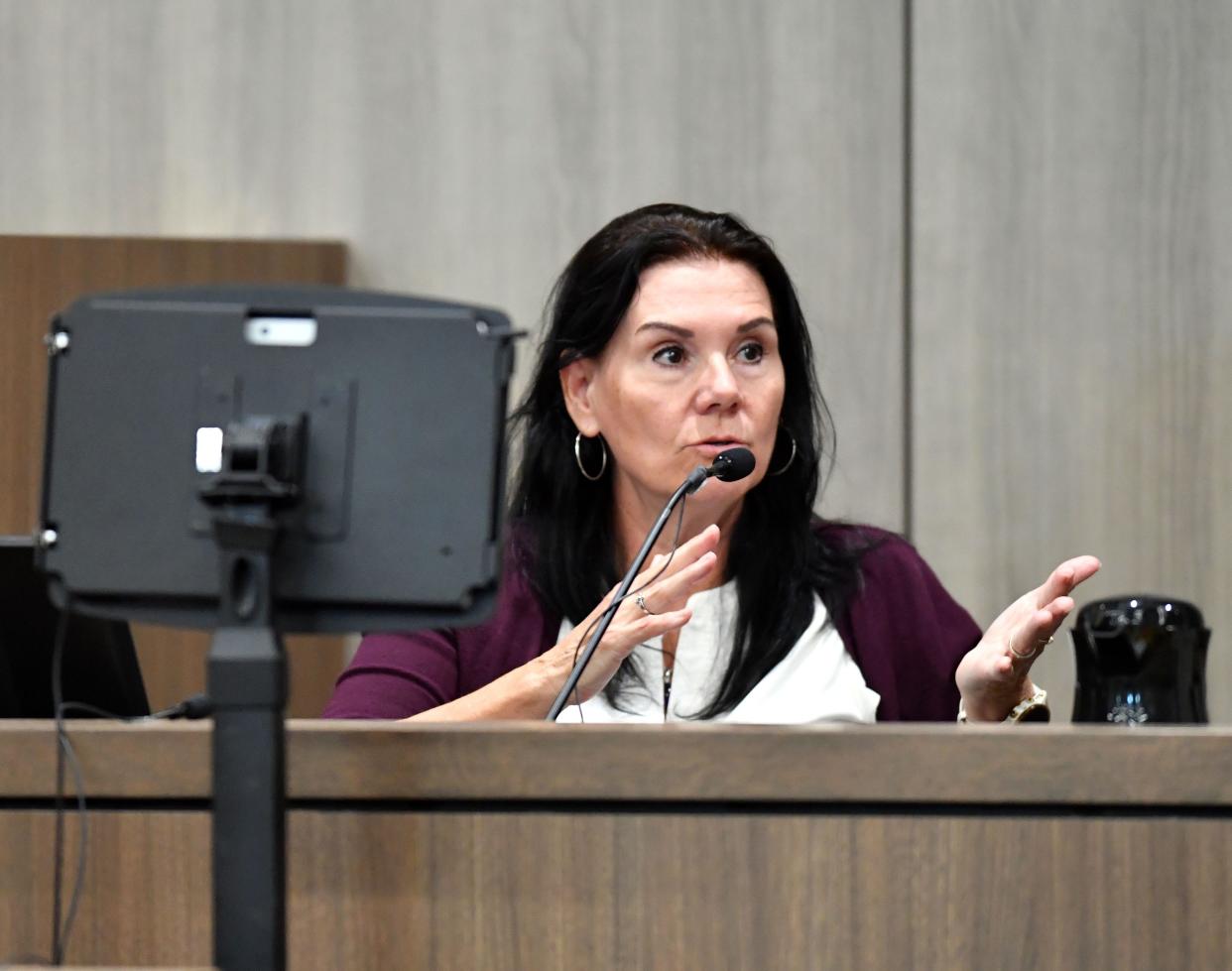
Klink, who was Maya's bedside nurse in the pediatric ICU, recalled a particular instant where she, Teppa-Sanchez, and a few residents were doing their routine morning rounds, and when they entered Maya's room, she said the child dropped the 'F' bomb several times and called Dr. Teppa-Sanchez a "F***ing A**H***."
While Teppa-Sanchez told Anderson she chose not to include the profane language in her report, opting to say Maya was very aggressive with staff, Klink reported that Maya was acting "erratic." Teppa-Sanchez clarified to the jury that she doesn't tend to write down specific words that are used because she finds it offensive.
However, Anderson pointed out in his cross-examination that when Teppa-Sanchez had learned via text months later from a colleague that "ketamine girl's mom committed suicide", she sent a text which included 'F***** up' in one of her replies.
Anderson also pressed Teppa-Sanchez about using the nickname "ketamine girl" and if it was appropriate to describe a patient in such a way. Teppa-Sanchez acknowledged that medical staff will sometimes use such descriptors among each other to avoid using the patient's name on their personal devices. When Anderson asked Klink a similar question, she said staff would often use a patient's room number, and that she hadn't heard of someone using a patient's condition to describe them.
More: 'Take Care of Maya' trial: Maya Kowalski testifies about hospital experience
Keep reading: Attorneys finish family's side, defense begins their case
Dr. Michelle Smith, a critical care physician who oversaw Maya's care from Oct. 10 through Oct. 12, recalled that Beata Kowalski was always polite to her and that she had been cooperative.
Smith contacted Nemours Children's Hospital in Orlando about possibly transferring Maya Kowalski for inpatient care. However, after reviewing information they'd received over the weekend, one of the pain medicine doctors wanted Maya as an outpatient to focus on physical therapy, occupational therapy, and cognitive behavioral therapy.
The Kowalskis were initially open to transferring Maya, but once they discovered that by signing the transfer papers they would agree to a diagnosis of a fictitious disorder or Munchausen Syndrome and that the doctors wouldn't place an intrathecal pump in Maya, they decided against it. An intrathecal pump is placed under the skin and infuses medications directly into the spinal cord to help with chronic conditions.
Staff also became concerned about both Maya and Beata's mental health, with Teppa-Sanchez recalling that Beata said the past year leading up to Maya's admittance had been rough and stressful.
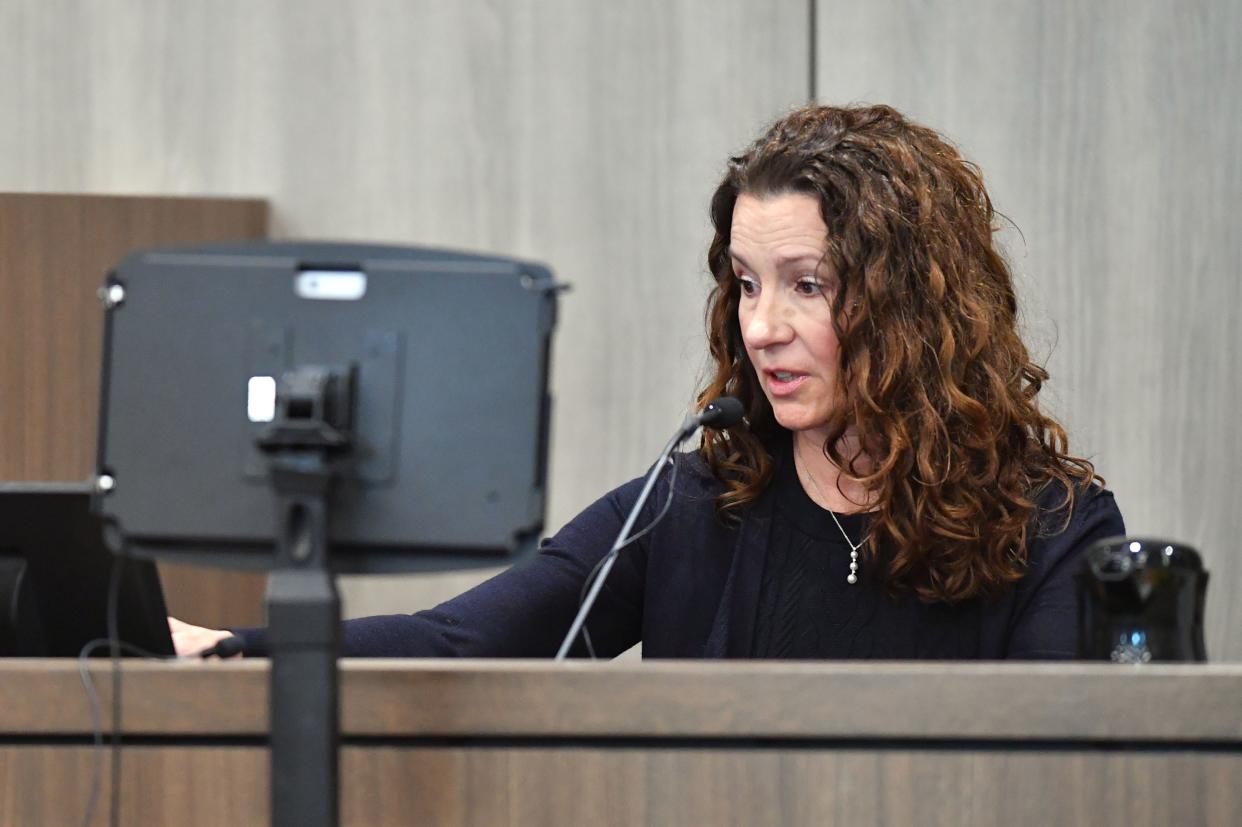
"She did mention that at times she just felt that she just couldn't do it anymore and that she, either her and Maya, as well were very stressed and thought that, you know, that at times she just wanted to die," Teppa-Sanchez said. "She also said, and I put it in quotes, that she just wanted 'to go to Heaven.'"
Teppa-Sanchez did confirm with Beata that she had a support system and Beata told her that she was fine and wasn't feeling that way at the moment, that it had been a past thought. Teppa-Sanchez also said that the hospital would also be able to get Beata resources if she needed them.
It was one of the reasons why Teppa-Sanchez felt that the psychiatry team should get involved, but Beata declined to have Maya undergo a psychiatric evaluation.
Doctors, nurses testify that Maya had inconsistent symptoms, complaints
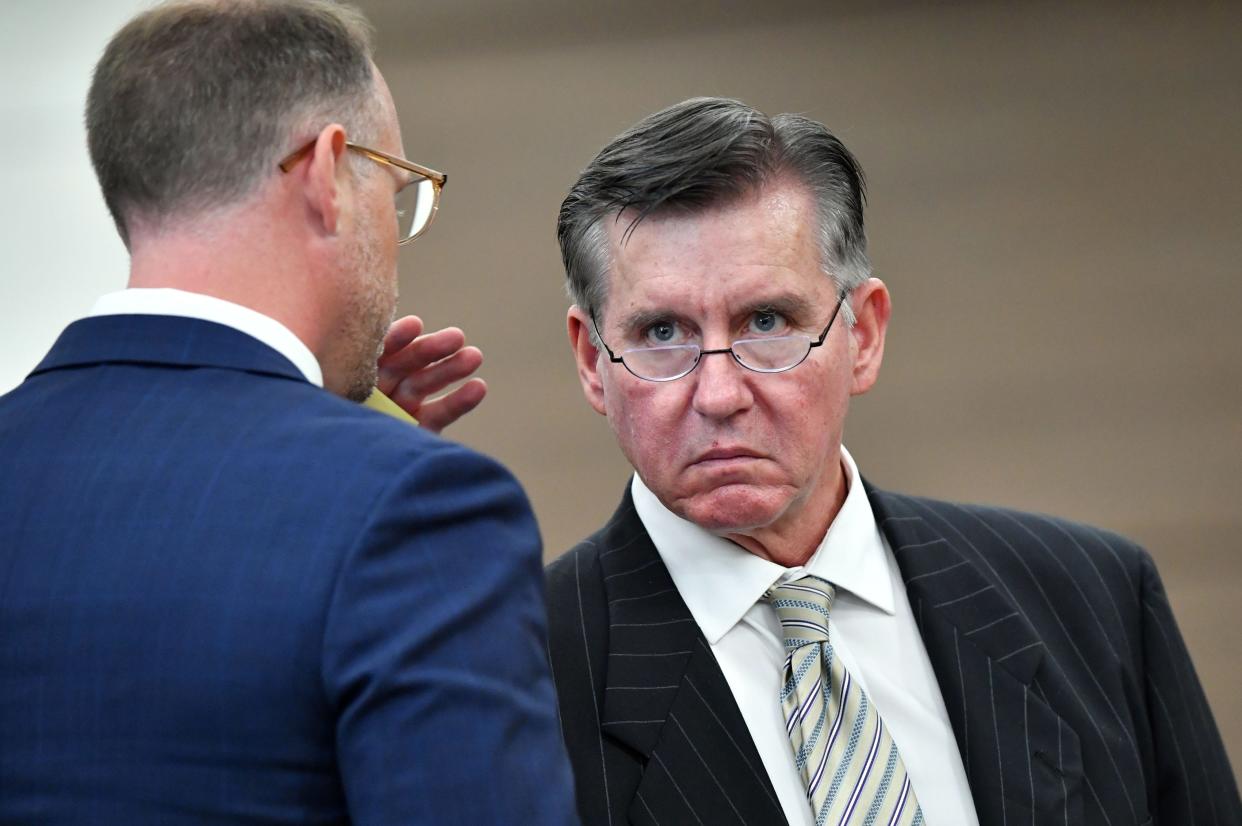
"I'm tired of all these lies. My life is a lie."
Those words have stuck with Klink for seven years, she said. Those were the words Maya had uttered to Klink when they were alone before becoming quiet when her mom walked into the room, she said.
It struck the registered nurse as a cry for help, but she never followed up with Maya after she told the treating doctors about the statement. She didn't usually follow up after reporting such incidents to the doctors, Klink said.
Klink added Maya acted like a totally different child when she was alone in the room with staff compared to when her mom would come in. When she was alone, Maya was a sweet little girl, but the moment mom walked in, she became quiet and withdrawn.
She recalled another time she found Maya moving around on her knees on her bed, which Klink said takes a lot of strength on a regular bed, not to mention an ICU bed that's an air mattress.
Throughout the trial, the jury heard that several doctors from different hospitals believed that Maya Kowalski had factitious and conversion disorders, with multiple defense witnesses from All Children’s and Tampa General Hospital describing experiencing similar situations where Maya's symptoms were inconsistent.
Teppa-Sanchez was struck by how the pain was deferred to whoever was touching Maya — when nurses tried attaching monitoring device stickers to her, the 10-year-old would say it hurt too much, but when her mother was rubbing her back or giving her hugs, Maya didn't express pain.
"It wasn't terribly clear what specifically was causing her the most pain," she said.
In case you missed it: Sarasota judge expresses frustrations with attorneys in 'Take Care of Maya' case
'Take Care of Maya' trial: Jury hears Maya's former attorney, doctor and social worker
Dr. Paul Kornberg, a doctor specializing in physical medicine and rehabilitation at Tampa General Hospital, also noted that Maya had inconsistent complaints, which made it challenging to treat her during her month-long stay at the hospital.
In Kornberg's deposition read to the jury by defense attorney Ethen Shapiro on Thursday, the doctor noted Maya was able to perform certain tasks on her own, but when he asked her to perform the same tasks or when she had to think about them, she was unable to do so.
"Unfortunately, there's nothing concrete and clear about Maya," Kornberg's deposition read. "... Because you know, if she had hyperesthesia or allodynia, it should have been something that was reproducible and consistent, but I don't recall anything about her presentation being consistent."
Kornberg also noted a lack of temperature and color changes in then 9-year-old Maya in his notes, as well as the fact that her pain seemed to appear all over and not in a specific region of her body, as is consistent with CRPS.
Kornberg did confirm that he didn't observe any signs of child abuse when evaluating Maya, as it would have been something he would have addressed.
Dr. Zachary Pittsenbarger, a pediatric emergency room physician at Ann & Robert H. Lurie Children’s Hospital in Chicago, examined Maya Kowalski on July 21, 2015; however, the examination was limited due to Maya screaming after he’d lightly touched her foot and Beata Kowalski asking him to stop further examination.
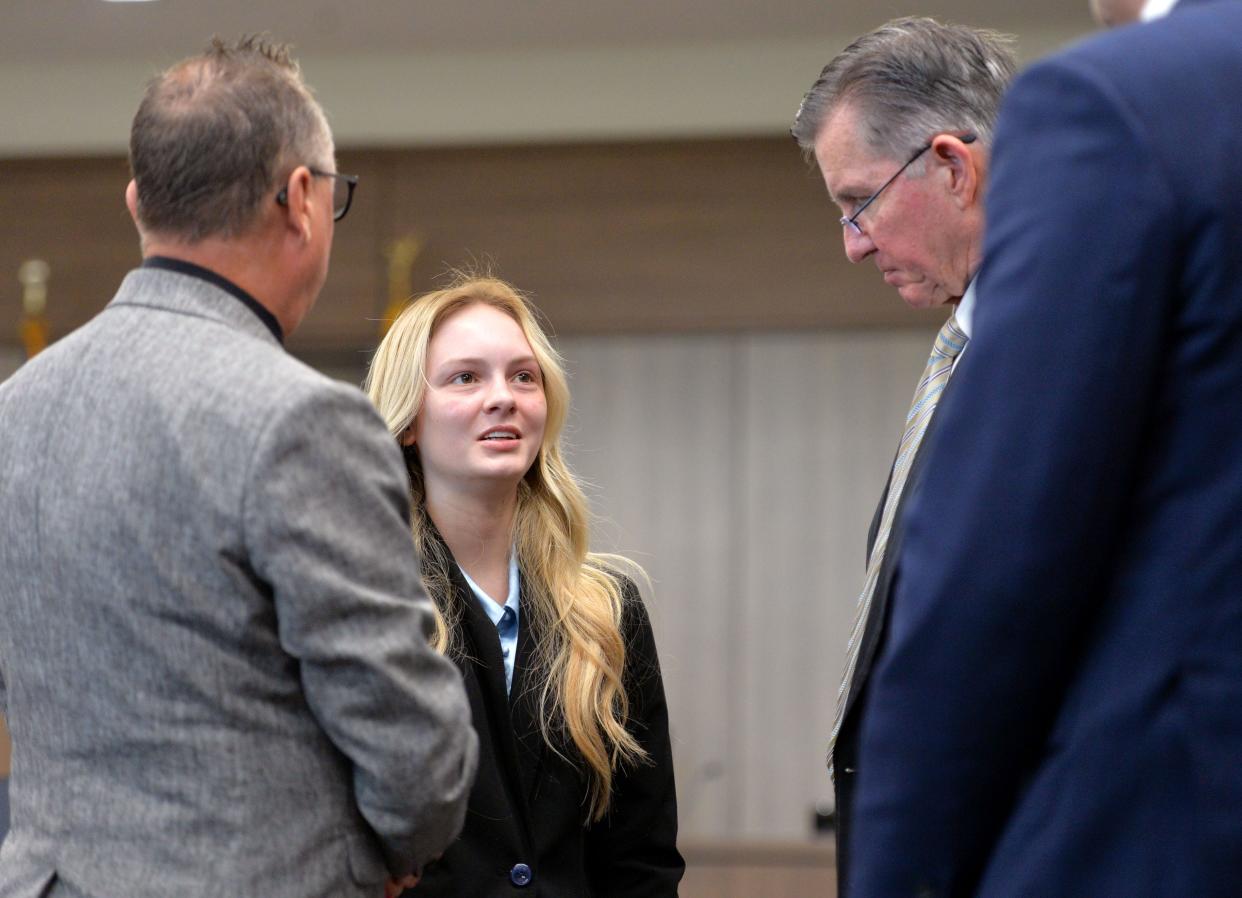
Testifying via video deposition, Pittsenbarger said Maya presented with severe weakness and constant muscular pain. He added that while he was asking Maya questions, she would appear fine without ongoing pain, but as soon as the conversation ended, she would go back to moaning and screaming in pain.
When asked why that was significant, Pittsenbarger explained that distractable pain is often thought to be less severe than non-distractable pain since the mind can focus on something else, but it doesn't necessarily lead to a diagnosis of a conversion disorder.
SCSO detective details interview with Jack Kowalski for criminal investigation into Beata
In November 2016, the Sarasota County Sheriff’s Office was contacted and opened an investigation into the Kowalskis, specifically into the medical child abuse allegations against Beata Kowalski.
No criminal charges were ever filed against Beata Kowalski as she took her life prior to the investigation's conclusion.
On Friday, former detective Stephanie Graham, a 24-year sheriff's veteran who retired from the department in May 2023, testified about her interview with Jack Kowalski on Nov. 17, 2016, at All Children’s Hospital.
Graham was given a small room in the hospital after she’d called prior to her visit so she could speak privately with Jack. The interview was completely voluntary, Graham said, adding she let Jack know at least twice that he was free to leave at any time.
The interview took more than an hour with Jack being unaware for at least part of the interview that it was being recorded, with parts of the audio played for the jury Friday.
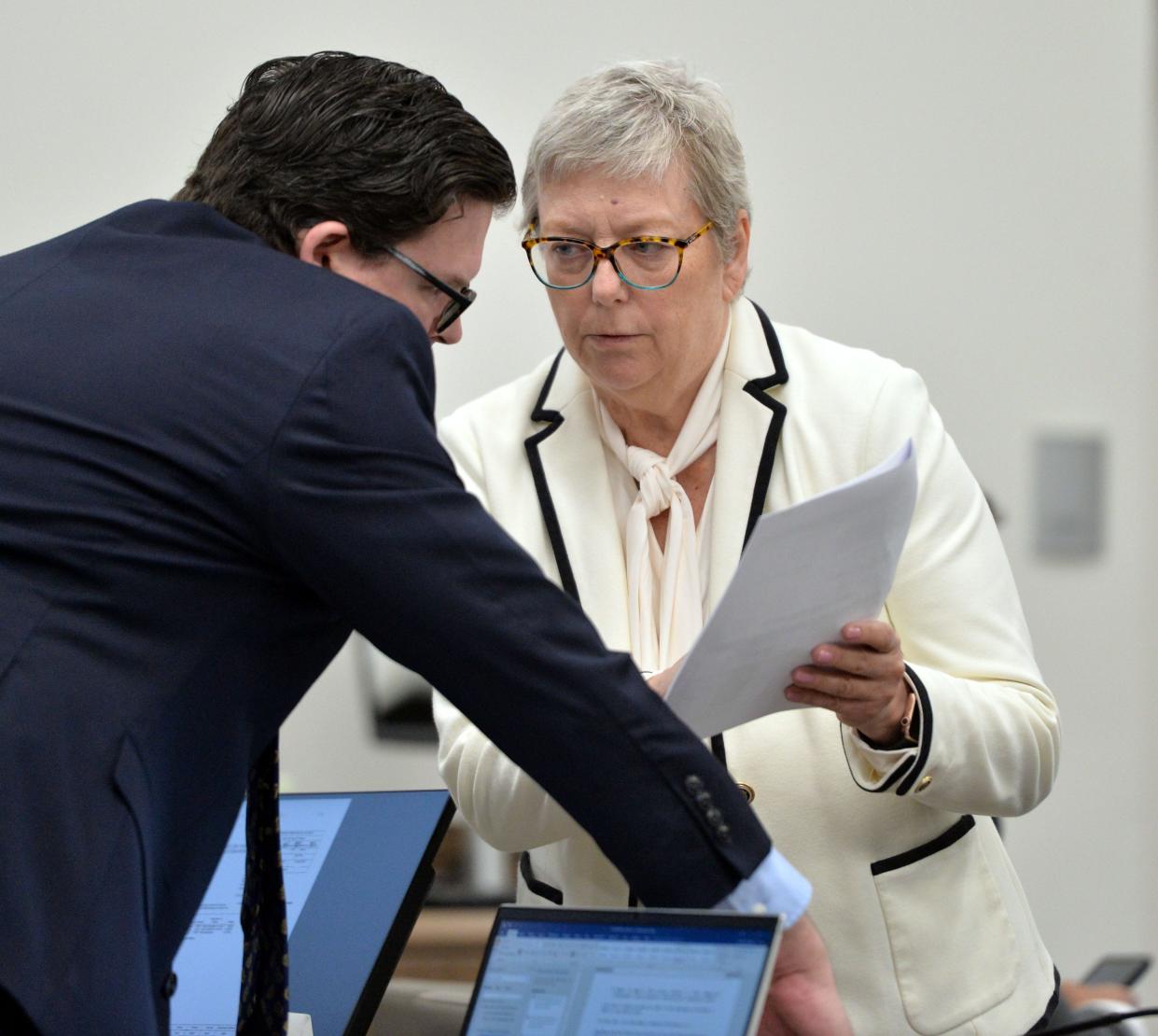
While Florida is one of several two-party consent states, meaning all parties must agree to be recorded, law enforcement is exempt from the law while they are actively pursuing a criminal investigation. Graham testified that individuals don’t have a right to privacy when speaking with police.
The jury heard Jack Kowalski in the audio telling Graham that Beata wasn’t being cooperative with the rules set by a Sarasota judge’s order and DCF’s guidelines and that he was appalled by some of her behaviors.
When Graham questioned Jack about why he and Beata went to such extremes with Maya’s medical treatment, Jack said he was told it was the last resort to help his daughter.
In addition, Jack disclosed to the detective that he’d heard from multiple people that his daughter would act normal when she was alone in a room with medical staff up until her mom walked in. Graham added that Jack told her that he saw the same thing happen at home, where his daughter would be fine when it was just the two of them, but as soon as mom walked in, she’d start crying.
What happened previously: 'Take Care of Maya' trial: Father takes stand, Sarasota judge denies 2 mistrial motions
More: 'Take Care of Maya' trial: Pain medicine specialist testifies about Maya's crippling pain
While Graham’s testimony and the recorded interview seemed to place Jack against his wife, it also revealed how protective Jack was of his children to the point that he was willing to consider Beata moving out of their home so he could bring Maya home.
Greg Anderson, the family’s attorney, questioned Graham about her “threatening Jack, to let him know you had put a father away for 10 years” while she was wearing a badge and gun, and was seated between him and the door.
Graham said the question was a little out of context, explaining that the parents in that case had thought they were doing the right thing when they committed the crime and loved their child, but the outcome wasn’t what they’d intended.
“I was explaining to him that even a loving parent thinking they’re doing the right thing, not knowing what the end result could be, could be punished for their actions,” Graham said.
Gabriela Szymanowska covers the legal system for the Herald-Tribune in partnership with Report for America. You can support her work with a tax-deductible donation to Report for America. Contact Gabriela Szymanowska at gszymanowska@gannett.com, or on Twitter.
This article originally appeared on Sarasota Herald-Tribune: 'Take Care of Maya' trial: Doctors testify in $220 million case
